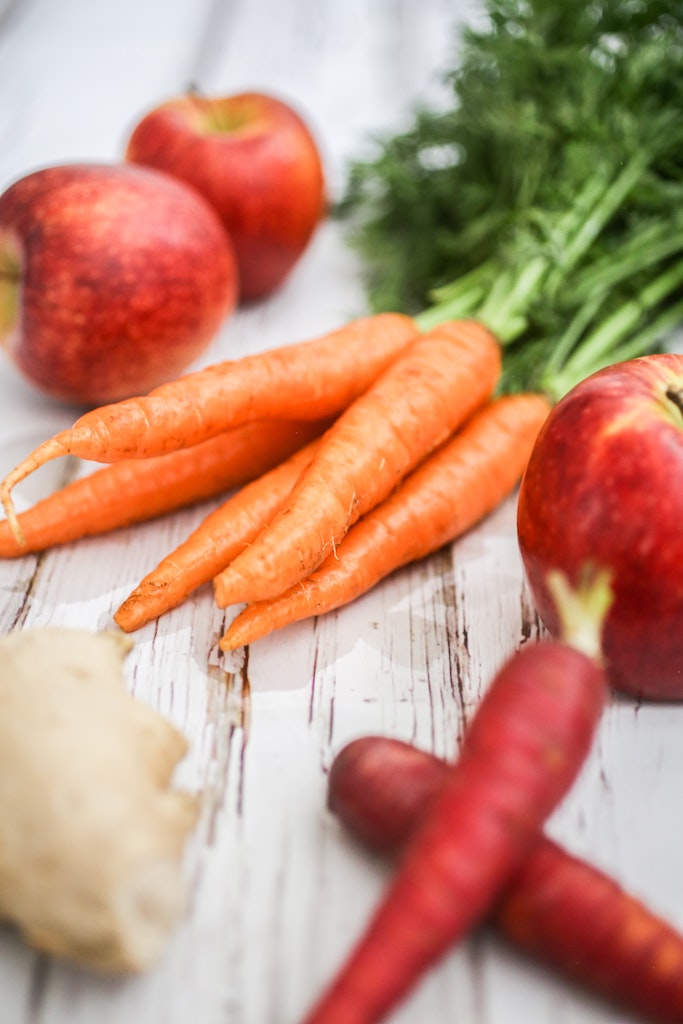Just like other areas of health, we should also be taking a holistic approach when it comes to immunity. This means focusing on not only diet, but also our mental health and lifestyle practices. Below I touch on each area to provide you with some tips to help guide you during this challenging time.
Key Foods
Boosting the diet with an array of immune supportive foods is one of the most effective ways to support immunity.
Here are some key foods, which are linked to improved immune function and health, some due to their anti-inflammatory and antioxidant properties and ability to supply fuel to immune cells:
- Fatty fish (salmon, mackerel, sardines), walnuts, hemp and chia seeds, leafy greens and flaxseeds –sources of omega-3 fatty acids.
- Beef, pork, chicken, oysters, crab, pumpkin seeds, wholegrains, mushrooms, yoghurt, cashews, chickpeas and oats – sources of
- Cottage cheese, cabbage, peas, beans, fish, chicken – sources of essential and non-essential amino acids.
- Natural yoghurt, miso, tempeh, sauerkraut, kombucha and kimchi – sources of fermented foods and good bacteria.
- Spinach, broccoli, cauliflower, soy beans, lentils and pistachios – sources of CoQ10
- Brazil nuts – source of selenium.
- Sunflower seeds, avocado, extra virgin olive oil – sources of Vitamin E.
- Sweet potato, carrot, kale, apricots, squash and capsicum – Sources of betacarotene a precursor to Vitamin A.
- Pineapple, oranges, lemon, capsicum, garlic, kiwi fruit, brussel sprouts – sources of Vitamin C.
- Herb and spices such as turmeric, ginger, garlic, sumac, paprika, coriander, cinnamon – sources of polyphenols and flavonoids.
Nutrient density is paramount!
As you can see, there are many specific foods to help support immunity but overall it’s important consume a nutrient dense diet. There are plenty of ways to ‘inject’ more nutrients into every day foods and meals; here are a few ideas to give you some inspiration:
- Add a handful of spinach or kale to smoothies
- When making hummus, add turmeric powder and grated carrot
- Add garlic and herbs to yoghurt and turn it into a dressing
- Stir flaxseed oil or LSA into yoghurt and top with berries for a snack
- Add turmeric, cumin, coriander and herbs to sweet potato mash
- Grind up nuts and seeds and add to smoothies, sauces and dressings
- If making a side of steamed rice – sauté leek, garlic, finely shredded cabbage with herbs and spices and toss the cooked rice through the mix before serving
- Roast a big batch of veggies – sweet potato, broccoli, cauliflower, leek, onion, capsicum, eggplant, zucchini and brussel sprouts with herbs and spices and make a conscious effort to add them to your meals throughout the day and at night time
- Make a soup! Soup is a fantastic way to eat more veggies and nutrient dense ingredients. Check out my Immune Boosting Chicken Soup HERE.
Lifestyle practices
Stress Reduction
Both acute and chronic stress can impair immune function and can also make us engage in unhealthy habits such as reaching for sugar rich comfort foods, which in turn further negatively impacts the immune system. This means, stress reduction must form part of your immune protocol. Stress reduction strategies will differ for everybody because no single activity works for all. To give you some ideas, see below:
- Exercise! Exercise is a great way to reduce stress but make sure to pick the right kind of exercise for you! For example, if you feel the need to get rid of nervous energy and a run will help, go running. On the other hand, if you feel very tight, anxious and exhausted and need to slow down, yoga or pilates may be a better pick. Tune in to how your body feels and listen to the messages it is sending!
- Seek support – loneliness is linked to poor mental health and has a knock on effect on immunity. Now is the time to seek support from your network. To keep social during the current times, pick up the phone and call friends, jump on Skype and have a 3-way chat, share recipes and food ideas or join some Facebook groups on topics you find interesting.
- Self care – just like work, eating and exercise form part of our daily routine, so too should self care! Schedule in some ‘me time’ whether this be listening to a podcast, taking an Epsom salt bath, sipping your favourite tea and reading a book or simply lying in savansana pose for 15min listening to calming music – find what suits you and most importantly don’t put it off or feel guilt for taking the time out!
Step up hygiene
Being on top of hygiene practices is critical. Have soap and hand wash accessible at all times, wipe down your phone screen with a wet one regularly, wash hands before eating, after coughing/sneezing, avoid touching your face and make sure to wash fruit and veggies well before eating. If social events or appointments are still on, make sure to be honest with yourself and others and avoid going if you have any symptoms.
Most importantly keep calm and take care!
